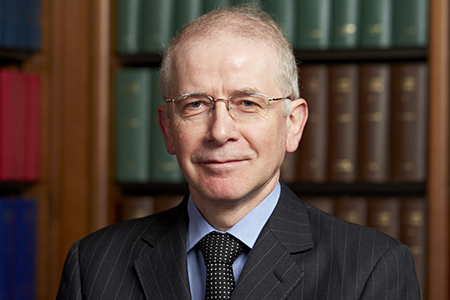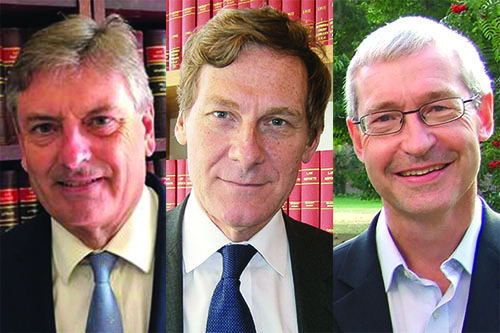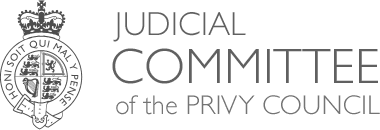02/2019 - News release
Lord Reed appointed next President of Supreme Court, alongside three new justices
24 July 2019
The Right Hon Lord Reed will succeed Baroness Hale of Richmond as President of the Supreme Court of the United Kingdom, it was announced today, alongside three additional appointments to the UK's top appeal court.

Her Majesty The Queen made the appointments on the advice of the Prime Minister and Lord Chancellor, following the recommendations of independent selection commissions.
Lord Reed will take up the position of President on 11 January 2020. Lord Justice Hamblen, Lord Justice Leggatt and Professor Andrew Burrows will join the Supreme Court as justices on 13 January, 21 April and 2 June 2020 respectively.
Lord Reed will replace Lady Hale who retires on 10 January 2020 after serving as President of the Supreme Court since September 2017.
The Queen has been pleased to confer a peerage of the United Kingdom for Life on the Rt Hon Lord Reed upon his appointment as the President of the Supreme Court of the United Kingdom in recognition of the contribution that he has made to law and justice reform.
Lord Reed was appointed as a justice of the Supreme Court in February 2012 and has served as Deputy President since June 2018. Prior to his appointment to the Supreme Court he served as a judge in Scotland, sitting from 1998 to 2008 in the Outer House of the Court of Session, where he was the Principal Commercial and Companies Judge, and from 2008 to 2012 in the Inner House.
He was educated at the Universities of Edinburgh and Oxford, and qualified as an advocate in Scotland and as a barrister in England and Wales. He practised at the Scottish Bar in a wide range of civil cases and also prosecuted serious crime.
As well as sitting on the Supreme Court and the Judicial Committee of the Privy Council, he is a member of the panel of ad hoc judges of the European Court of Human Rights, and a Non-Permanent Judge of the Hong Kong Court of Final Appeal. He is also the High Steward of Oxford University.
Following today's announcement of his appointment, Lord Reed said:
"It is a great honour to succeed Lady Hale as President of the Supreme Court. In this year when we are celebrating the tenth anniversary of the opening of the Court, I reflect on the achievements of the distinguished Presidents who have come before me. I am privileged to follow them in working with my colleagues to maintain the fundamental role which the Supreme Court plays in the law of our country.
"As President I will continue to champion the rule of law, alongside promoting public understanding of the role of the judiciary and maintaining the high regard in which the Court is held around the world."

The Rt Hon Lord Justice (Nicholas) Hamblen (Sir Nicholas Hamblen) was educated at St John's College, University of Oxford and Harvard Law School, and was called to the Bar (Lincoln's Inn) in 1981. He practised at the Commercial Bar from 1982-2008. He was appointed Queen's Counsel in 1997, an Assistant Recorder in 1999 and a Recorder in 2000. He was appointed to sit as a Justice in the High Court in November 2008 and was a nominated Commercial Court Judge. In February 2016 he was appointed a Lord Justice of Appeal.
The Rt Hon Lord Justice (George) Leggatt (Sir George Leggatt) read Philosophy at King's College, Cambridge, studied at Harvard University as a Harkness Fellow, was a Bigelow Teaching Fellow at the University of Chicago Law School, and worked as a foreign lawyer at the law firm of Sullivan & Cromwell in New York, before joining Brick Court Chambers in London in 1985. He practised as a barrister from those chambers until 2012, specialising mainly in commercial cases. He was appointed a QC in 1997. He also sat as a Recorder on the Western Circuit for 10 years. From 2006-2008 he was Vice-Chair of the Bar Standards Board. He was appointed a High Court Judge in 2012, assigned to the Queen's Bench Division, and was promoted to the Court of Appeal in 2018.
Professor Andrew Burrows is Professor of the Law of England at the University of Oxford and a Fellow of All Souls College. He was educated at Prescot Grammar School, Knowsley, Merseyside and Brasenose College, Oxford. He has been a barrister at Fountain Court Chambers since 1989. He was appointed QC (hon) in 2003 and is an Honorary Bencher of the Middle Temple. He has been sitting as a part-time judge for over 20 years, first as a Recorder and then as a Deputy High Court Judge. He was a Law Commissioner for England and Wales (1994-1999) and the President of the Society of Legal Scholars (2015-16). He was elected a Fellow of the British Academy in 2007 and has written many books and articles especially on contract, tort, unjust enrichment, and statute law.
Lady Hale welcomed the appointments, saying:
"I am delighted to welcome the appointments of three new justices, all of whom are distinguished in their fields, and who will join the Court during 2020. I congratulate Lord Justice Hamblen, Lord Justice Leggatt and Professor Burrows, and am confident that they will contribute to the success of the Court greatly."
Details of the swearing-in ceremonies will be announced in due course.
Lord Reed's appointment also means that a new Deputy President will now be appointed. The recommendation for this appointment will come from a commission convened by the Lord Chancellor for this purpose. An announcement is expected before January 2020, when it is intended that the new Deputy President should take up office. Further details are available on the Supreme Court website via the following link:
Ends
Notes to editors
1. The selection process for the President and justice is mostly set out in statute (the Constitutional Reform Act 2005). In short, the steps usually undertaken by the independent selection commissions (once convened by the Lord Chancellor) are:
- Consultation with the Lord Chancellor on the positions to be advertised and the process of selection.
- Candidates are invited to submit an application and a personal statement. The basic eligibility criteria are set by Parliament.
- The statute also requires that the Lord Chancellor, the First Minister in Scotland, the First Minister in Wales, the Judicial Appointments Commission in Northern Ireland and senior judges across the UK are consulted as part of the selection process.
- Candidates are interviewed by the commission. Under changes introduced by the Crime and Courts Act 2013, where two candidates are deemed to be of equal merit, the commission can give preference to one candidate over the other for the purpose of increasing diversity within the Court.
- After interviews, a report is sent to the Lord Chancellor for his consideration. There is another round of consultation with the senior politicians and judges. The Lord Chancellor then accepts the recommendation(s), or can reject it, or ask the commission to reconsider.
- When the Lord Chancellor accepts a recommendation, the name is notified to the Prime Minister and HM The Queen. Candidates are informed of the outcome, and the Prime Minister's Office then makes an announcement
2. The launch of the appointment competitions was announced on the Supreme Court website on February 2019. The competitions were open to candidates from any part of the United Kingdom and with any professional background which meets the statutory criteria for appointment.
Details of the recruitment process can be found in the Judicial Vacancies section on the Court's website.
UKSC contacts:
Contact
Janet Coull Trisic - Acting Head of Communications
020 7960 1887
Rebecca Lowson - Media and Communications Manager
020 7960 1894
